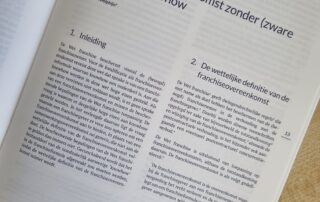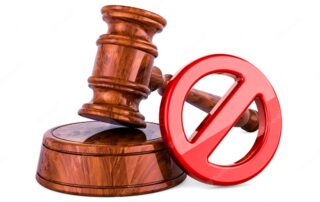Franchisor hinders litigation – An unbalanced arbitration clause
This has been agreed in a franchise agreement disputes shall be settled by arbitration, to be held in New York, in the English language. The court of Amsterdam considered that agreement to be valid. On appeal, the opinion was different. See the judgment of the Amsterdam Court of Appeal of 3 July 2014, ECLI:NL:GHAMS:2014:2270.
Subway International BV is located in Amsterdam and has concluded a franchise agreement with a franchisee in Enschede for the operation of a sandwich shop under the Subway formula. The parent company of Subway International BV is from the United States.
The franchisee gets into a dispute with Subway International BV and summons Subway International BV before the court in Amsterdam. Subway International BV refers to the arbitration clause in the applicable general terms and conditions. There it is stipulated that disputes will be settled under the law of Liechtenstein, and that the proceedings will be held in English and in New York, in accordance with UNCITRAL’s Arbitration Rules. The court agrees. The franchisee appeals, because it is believed that the clause is null and void since it would be unreasonably onerous for the franchisee.
First of all, the court wonders whether the arbitration clause should be assessed under the law of Liechtenstein. That question is answered in the affirmative in an interim judgment. See Amsterdam Court of Appeal 20 August 2013, ECLI:NL:GHAMS:2013:2580.
The second question is whether, under the law of Liechtenstein, the arbitration clause is also valid. Liechtenstein law has a rule that a contractual arrangement may be invalid if there is a “ significant imbalance ” between the contact parties.
The Court states first and foremost that the franchisee must be seen as an economically weaker party compared to the franchisor, which is a multinational with more branches worldwide than Macdonalds. The franchisor’s financial resources, expertise, and economic strength and power far exceed those of the franchisee. Even if the franchisee were to plead his case without legal assistance, the franchisee would have to travel to the United States to defend his case. According to the court, the possibility to be heard by means of a conference call cannot be equated with arguing the point of view at a hearing. The costs of the arbitration procedure prescribed by the franchisor are therefore much higher than the costs of an (arbitration) procedure in the Netherlands. The fact that litigation must be conducted in the United States and in English is therefore solely in favor of the franchisor, now that its parent company is located there.
The franchise contract is significantly unbalanced on this point and therefore cannot stand. In effect, the franchisor creates an unacceptable barrier to the franchisee’s ability to litigate.
It is important for both franchisors and franchisees to enter into a balanced franchise agreement. If that balance is significantly disturbed, this can lead to the invalidity of contractual agreements. Good prior testing of the franchise agreement is therefore a must.
Mr AW Dolphijn – Franchise lawyer
Ludwig & Van Dam Franchise attorneys,franchise legal advice. Do you want to respond? Mail to dolphijn@ludwigvandam.nl

Other messages
Car dealer wrongly not a franchisee?
The Franchise Act entered into force on 1 January ...
Suspension of payouts allowed by the franchisor
The District Court of Limburg ruled on 30 March 2023, ...
Franchising is on the rise: ‘There is still a huge amount of room for it in the Netherlands’
An interview with mr. AW Dolphijn about franchise. De Beren, ...
The franchise agreement without (heavy demands on) know-how
In the 2023-1 edition of Contracting magazine, I published a ...
Standstill period violation
On 15 March 2023, the District Court of Noord-Holland, ECLI:NL:RBNHO:2023:2636, ...
Violation post prohibition of competition, no fine!
The District Court of Zeeland-West-Brabant ruled on 15 March 2023, ...







